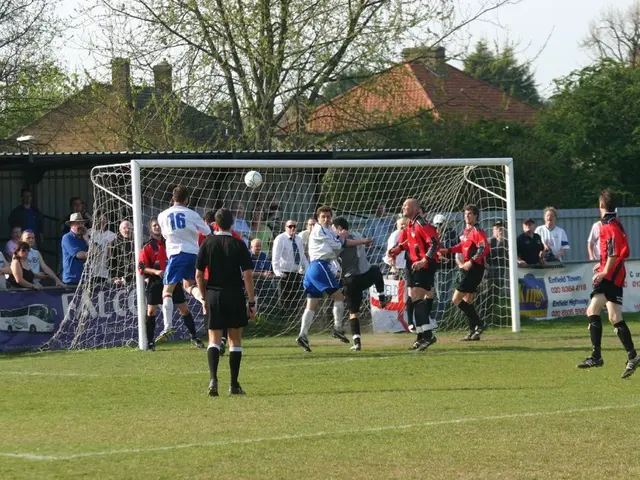Lawmakers in Massachusetts Advocate for the Legalization of Online Casinos
Let's Dive into the Latest Online Casino Buzz in Massachusetts
Massachusetts is gearing up to dip its toes in the exciting world of online casino gaming, as lawmakers throw their hats into the ring to legalize this virtual gambling option. Here's a rundown of the latest happenings surrounding the proposed legislation.
Key Points:
- Massachusetts legislators proposed a bill to legalize online casino gaming
- The bill aims to boost state revenue and bring the gambling scene to the digital age
- Consumer protection and responsible gaming measures are key considerations in the bill
Brace yourself, folks! Massachusetts might soon become the next gaming sensation, as lawmakers put forth a plan to legalize online casino gaming, joining an ever-growing list of states embracing the digital gambling trend. The proposed bill, sponsored by Senator Bruce Tarr and Representative Brad Hill, intends to upgrade the state's traditional brick-and-mortar casinos with an online counterpart, complementing the already existing online sports betting scene.
The bill, dubbed SD 2583, empowers the Massachusetts Gaming Commission to issue licenses for online casino operations, erecting a foundation for a whole new online gaming landscape in the Bay State. With states all across the nation recognizing the economic potential of online gambling, this legislative move could stir a wave of excitement among casino operators and enthusiasts alike.
To ensure the well-being of players, the bill emphasizes responsible gaming measures and consumer protection. In essence, licensed operators would be obliged to implement self-exclusion programs, betting limits, and age verification, among other protective measures. Furthermore, the bill earmarks a slice of the revenue generated from online casino gaming for problem gambling prevention and treatment programs.
The proposal highlights the importance of maintaining a competitive edge in the regional gaming market. Neighboring states such as New Jersey and Pennsylvania have already legalized online casinos, making it a race against time for Massachusetts to get a piece of the action.
On the other hand, critics voice concern over the potential negative social consequences that could stem from the greater accessibility of interactive casino games. They argue that the convenient access to gaming options could exacerbate gambling problems and lead to a slew of social issues.
The Massachusetts Gaming Commission would be tasked with overseeing the licensing and regulation of online casino operators. This includes scrutinizing their compliance with state laws, monitoring for fraud and maintaining high cybersecurity standards. If approved, the bill would bestow upon online casino operators a licensing fee and tax obligations based on their gross gaming revenue.
Stay tuned as the bill works its way through the legislative process, with committees, debates, and potential amendments on the horizon. The outcome of this proposal could reshape the future of gambling in Massachusetts and possibly pave the way for similar ventures in other states.
Bonus Insights:
- Currently, online casino gaming remains unauthorized in Massachusetts. However, efforts are underway, with bills such as HD 4084 and SD 2240, aiming to change this status.
- The economic impact of legalizing online casinos could include additional revenue streams for the state, job creation, market growth, and the need for regulatory frameworks.
- The Massachusetts Gaming Commission would be instrumental in establishing guidelines to ensure fair play, consumer protection, and strict cybersecurity measures.
- Gambling addiction concerns might escalate with the introduction of online casino gaming, requiring increased investments in gambling awareness and support programs.
- Potentially influencing the regional gaming market, Massachusetts legislators are advocating for the legalization of online casino gaming, as outlined in SD 2583, mirroring the trend set by states like New Jersey and Pennsylvania.
- Following the legalization proposal, the Massachusetts Gaming Commission would be responsible for regulating online casinos, enforcing measures such as age verification, self-exclusion programs, and betting limits to prioritize responsible gaming.
- A portion of the revenue generated from online casinos would go towards problem gambling prevention and treatment programs, signifying a proactive approach by lawmakers aiming to mitigate any potential negative social consequences.








